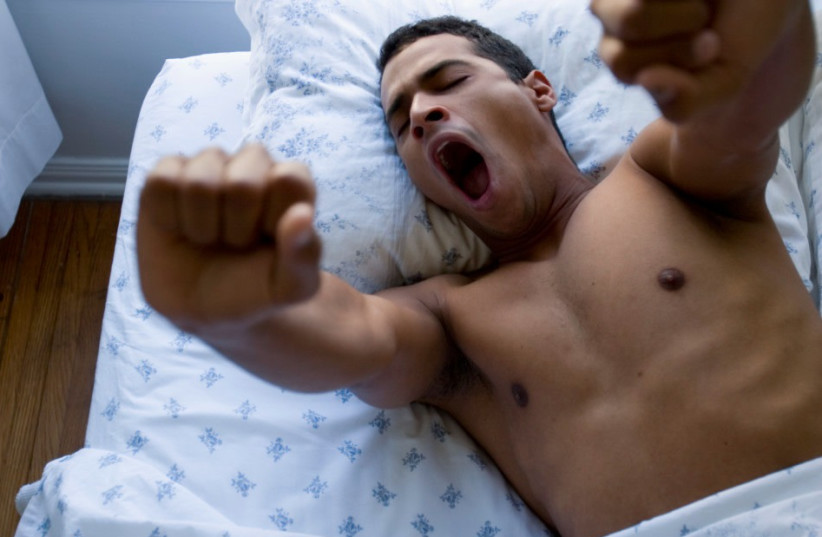It's a wintry morning and you're under the covers, the alarm goes off and you just want to keep your eyes closed. But what happens after you wake up completely? It seems that for TikTok users, there aren't many reasons to leave the bed.
A new trend called "Hurkle-Durkle" is causing them to stay in bed for minutes and sometimes even hours after waking up.
What do the experts say?
What is TikTok's Hurkle-Durkle trend?
For years, TikTok trends have been filling a significant part of our daily routine. This social media platform has already enriched our lexicon with various expressions, but the new term driving users crazy in recent days is not actually new. "Hurkle-Durkle" is an old Scottish term meaning "to lie in bed or to lounge until it is necessary to get up." And when is it necessary to get up? That remains an open question without a clear answer.
This trend apparently started last month with a video by Jewish-American actress Kira Kosarin, 26, from New Jersey, and since then, it has been viewed nearly 4 million times. In the video, Kosarin defines the term and expresses her connection to this pampering ritual in the mornings. During the "Hurkle-Durkle," after getting up in the morning, you simply stay in bed. Some people have a glass of water on their bedside table, others stay in bed browsing on their mobile phones, while others may briefly go to the bathroom and return to bed. Either way, they remain awake and lying on the bed.
However, experts have already rushed to investigate this trend and argue that significant change is very important for physical and mental health. The human body usually "tells us" to get out of bed, but excessive continuation of lying down can not only disrupt the day, but also delay the arrival of sunlight to the eyes and from there to the brain, which is supposed to reduce the production of the sleep hormone melatonin. This hormone is the biological clock in our body, which monitors the hours of wakefulness and sleep.

Prolonged lying in bed can also affect the skeletal system, cause back pain due to the unnatural posture of the body during prolonged sleep, problems with blood flow to the lower limbs due to lack of movement, and even in certain cases, such as in the elderly - the formation of pressure sores.
"The phenomenon of lying in bed after waking up is dangerous," says Dr. Yoel Raiter, director of the Sleep Institute at Hadassah-University Medical Center. "In this way, the brain stops connecting the bed with sleep, and subsequently sleep 'falls apart' in general. We are able to sleep for a certain amount of hours, and if we spend more than that in bed, we will lose sleep at the beginning, end, or during the night. We want to wake up in the morning and start our day, including exposing ourselves light to recalibrate the biological clock."
And if you decide not to open your eyes at all, it is advisable to know how many recommended hours of sleep are needed at night. For newborns who have just been born, the guidelines are 14 to 17 hours of sleep per day. Babies aged three months and older need 12 to 15 hours of sleep per day. At the age of one, the need for sleep decreases to 11 to 14 hours. Kindergarten-aged children, who are more active, need 10 to 13 hours. Elementary school children need nine to 11 hours of sleep. Adolescents need eight to 10 hours, and the recommended duration of nighttime sleep for adults is seven to eight hours.
